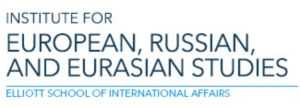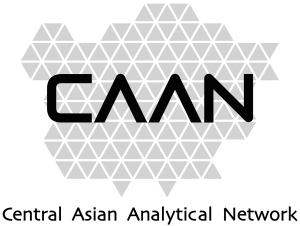Joanna Lillis is a well-known journalist who has been one of the main reporters on Central Asia over the past 13 years. Her book Dark Shadows: Inside the Secret World of Kazakhstan, which sums up her extensive coverage of Kazakhstan’s turbulent political history, will be published by I.B.Tauris at the end of October 2018. In this interview, Joanna talks about her book and the secret world of Kazakhstan that it reveals.
Joanna Lillis

Joanna Lillis is a Kazakhstan-based journalist reporting on Central Asia for outlets including The Economist, The Guardian and the Eurasianet website. Prior to settling in Kazakhstan in 2005, she lived in Russia and Uzbekistan between 1995 and 2005, and worked for BBC Monitoring, the BBC World Service’s global media tracking service.
Dark Shadows is a compelling portrait of Kazakhstan, a country that is little known in the West. Strategically located in the heart of Central Asia, sandwiched between Vladimir Putin’s Russia – its former colonial ruler which sees Kazakhstan as its own backyard – and Xi Jinping’s China – the rising global superpower on its eastern borders – this vast oil-rich state is carving out its place in the world as it contends with its own complex past and present. Journalist Joanna Lillis paints a vibrant picture of this emerging nation through vivid reportage based on 13 years of on-the-ground coverage, and travels across the length and breadth of this enigmatic country that lies along the ancient Silk Road and at the geopolitical and cultural crossroads where East meets West.
Your book “Dark Shadows: Inside the Secret World of Kazakhstan” will be published in the coming months. I hope that what will be inside the “Secret World of Kazakhstan” is not itself a secret. And should Russian speakers expect a translation of the book?
Dark Shadows is a book about Kazakhstan and the people who live there. People in the West hear about Kazakhstan mostly from either government-sponsored PR, which is effective at putting a positive spin on the country and its leader, or from Western journalists. These reporters often fly in to spend a short time in the country and may find themselves dazzled by government spin or struggle to look beyond the stereotypes. Of course, I am a Western reporter myself, but this book—based on my 13 years of on-the-ground reporting from Kazakhstan, where I have lived since 2005—is intended to give a voice to the people who live in Kazakhstan, whose voices are all too rarely heard.
This book—based on 13 years of on-the-ground reporting from Kazakhstan,—is intended to give a voice to the people who live in Kazakhstan, whose voices are all too rarely heard
Dark Shadows has several themes, chief among them politics, identity, and history.
No book about Kazakhstan would be complete without tracing the political trajectory the country has taken over the course of its 27 years of independence under Nursultan Nazarbayev, the president who has ruled for nearly three decades. The book looks at the forces that have come together to allow Nazarbayev to occupy the towering role he holds today as the potentate of Kazakhstan.
The book examines Astana’s micromanagement of elections, which are a travesty of democracy, since they are run with all the trappings but lack the one essential element: political choice. It looks at the muzzling of the media, including dark tales of violence and intimidation; at the ruthless suppression of opposition and dissent; at the total intolerance of peaceful protest. It also examines the positive legacy of the rule of Nazarbayev, who is genuinely popular among many people, who credit him with providing stability and prosperity and appreciate his inclusive attitude toward ethnic minorities. On the flip side, the book looks at the power of propaganda in fueling this popularity—what critics deride as a cult of personality.
Dark Shadows also traces some of the often incredible and sometimes horrifying events that have shaped political life in Kazakhstan since independence, from the murderous escapades of Rakhat Aliyev, Nazarbayev’s deceased and disgraced former son-in-law, to the manhunt for Mukhtar Ablyazov, the France-based oligarch and political bête noire of the regime, a tale which contains some extraordinary twists and turns.

Dark Shadows further examines the fascinating and complex identity—or identities—of Kazakhstan and its people. Where did the Kazakhs come from? What forces have shaped the identities of the Kazakhs and other peoples of Kazakhstan? Why is their country such a melting pot? What is the legacy of the tsarist and Soviet colonial eras? Which processes have wrought demographic transformations in Kazakhstan over the last century or so, and how are the country’s demographics changing today? Read the book to find some of the answers to these and other questions.
Dark Shadows contains eyewitness testimony from survivors of the traumas that shaped Kazakhstan’s engrossing and enigmatic history—especially the tumultuous Stalin era, which has left such a dramatic imprint on the present, from the famine and repressions of the 1930s to the deportations of the 1940s.
People living with the devastating environmental impact that Kazakhstan inherited from the Soviet Union’s cavalier use of its land to serve Moscow’s grand designs also tell their stories, in places like Semipalatinsk, where victims of nuclear testing are living with crippling disabilities, and the shrunken Aral Sea, where people live in an ecological disaster zone because its waters were drained to irrigate parched deserts and grow cotton. Some of these stories are well-known, but hopefully Dark Shadows will give the people living with this dark legacy a voice to explain what it means to them.
The book also contains eclectic tales that illustrate the sheer diversity of this wonderful country and the lives its people are living: from the Russian Old Believers nestled in far-flung alpine villages who bear ecclesiastical grudges that date back half a millennium, to the maverick atheist who suffered jail and forced psychiatric treatment in a battle with the state over his principles; from the farmer breeding ostriches on the southern plains to the villagers living in the vast expanses of the north who just can’t stop falling asleep.
Overall, I hope that Dark Shadows will give a voice to the people of Kazakhstan and allow audiences in the West to learn something about the way they live. There is no Russian translation of the book planned at this stage.

As a journalist who has covered Central Asia, particularly Kazakhstan, for many years, how would you describe Kazakhstan in one sentence if asked by someone in your native country, the United Kingdom, what type of country it is?
It’s hard to sum up a country in a single sentence, but if pushed I would say something like this:
Kazakhstan is a country that is complex and compelling, diverse and dazzling, beautiful and blighted, full of bright and courageous people who are shaping a present and future out of a past that is troubled and turbulent.
Kazakhstan has been criticized for human rights abuses and pressure on the media in recent years. Is the country following the path of its neighbors in the region?
Kazakhstan has a seriously blighted human rights record, and I believe that it has been on a downward spiral in the 13 years that I have lived here. The regime rampantly abuses political and civil liberties. The country has not held a free and fair election in the more than a quarter of a century since independence; elections have become farcical exercises designed to shore up the regime rather than give the people of Kazakhstan a political voice. Nazarbayev last won re-election with 98% of the vote, which reflects not the level of his popularity—although, as I said before, he is genuinely popular—but the fact that there is no opposition to challenge him.


The authorities tolerate no alternative points of view. They have hounded opposition parties out of existence, closing them down through the courts, harassing and jailing opposition leaders, and generally creating conditions in which it is impossible for political opposition to operate. Independent media are muzzled and squeezed out of existence, and the authorities have a zero-tolerance policy toward peaceful protest.
This has been clearly demonstrated on numerous occasions in recent years, from the mass arrests during protests against land reform in 2016 to recent arrests of protesters demonstrating at the instigation of the exiled oligarch and Nazarbayev foe Mukhtar Ablyazov.
The government’s intolerance of dissent has reached absurd levels; the bottom line is that Astana simply refuses to tolerate anyone expressing a point of view that is different from its own. It basically equates public protest with treachery, and on two occasions in recent years it has painted protests as attempts to topple Nazarbayev: in 2011, when a mishandled oil strike spiraled into deadly violence after security forces opened fire on the crowds, and in 2016, when the land protests were depicted as a nefarious, albeit rather hazy, attempted coup. In both cases, people were jailed on highly spurious charges.
You suggest that Astana may be following its neighbors, but frankly, in my opinion, Kazakhstan is a leader rather than a follower when it comes to human rights abuses. As Dark Shadows illustrates, the authorities have dreamt up all kinds of ways of stamping out dissent, from jailing lone demonstrators staging one-man or one-woman protests to imprisoning people expressing dissent online. This is another reason why I thought it was important to give people a voice through this book: because Astana suppresses dissenting voices and seeks to create the impression that Kazakhstan is a country in which there is only one opinion—the official one. As in any country, this is not the case: people have differing opinions, and they should have the right to express them, as long as they do so peacefully.
What is your view on corruption and the clans? Is Kazakh politics still shaped by the clans or are more diversified patronal networks involved?
Corruption is eating away at the fabric of the state. High-level corruption is rampant, as regular high-profile criminal cases illustrate, but graft also pervades public services at every level: education, healthcare, the civil service, and the criminal justice system. There are many examples of corruption in Dark Shadows, but I look specifically at the issue and how it creates a rotten core in the state through the prism of one of the most distressing stories I have ever covered in Kazakhstan: the mass infection of children with HIV in Shymkent hospitals in 2006, which was caused by corruption and negligence in the healthcare sector. This is a very powerful example of how low-level, pervasive corruption—which is dismissed by some in Kazakhstan with a shrug, as a fact of life about which nothing can be done—has a devastating impact on human life. The book also contains examples of corruption creating threats to national security and skewing the criminal justice system, where (as is officially acknowledged, since there have been many trials illustrating this) police and prosecutors take bribes to influence cases and judges pocket money to give favorable sentences.
The book examines the selective nature of the fight against corruption, which often becomes a political tool wielded to wage intra-elite warfare.

The question of what shapes Kazakh politics is a different one. Certainly there are powerful elite groups that influence political processes, but currently there is one towering figure who shapes political life: Nursultan Nazarbayev. These are interesting times, because preparations are undoubtedly under way for the eventual and inevitable succession of the president, who turned 78 in July, but the process is opaque and we do not yet know when it will happen or how it will pan out. For now, politics in Kazakhstan is a one-man show.
Yet do you agree that living standards in the country have increased substantially since independence? Kazakhs live better than their neighbors, the state is wealthier, and economic indicators are higher than in the other “stans”. Foreign companies do not bypass it and migrants from neighboring Central Asian countries come to Kazakhstan in search of employment. Could things be better than they are economically, both for the country and for the people?
Yes, living standards have increased enormously since independence—as they should have, since in 1991 Kazakhstan, like every other post-Soviet country, was in dire economic straits. The people of Kazakhstan do generally have higher living standards than many of their neighbors, but that is to a great extent thanks to oil—Kazakhstan won the economic lottery in that regard.
I would add that although Nazarbayev and successive governments have done much to raise living standards, they have not used their country’s oil wealth as wisely as they could have. If they had spent less on vanity projects, including the city of Astana, and more on basic amenities—like taking running water and gas to villages—the people would live far better than they do at present.
There are also massive (and growing) rich-poor and urban-rural divides that need to be tackled.


Furthermore, officials from Nazarbayev down have talked for years about diversifying the economy to reduce reliance on oil and gas, but successive efforts have been sluggish and patchy—at least in part because the machinery of the state is sluggish and inefficient—and have failed to wean Kazakhstan off its addiction to commodity revenues.
My answer to your question “could things be better than they are economically, both for the country and for the people?” is: Yes, most definitely, they could be far, far better, with better management of the economy, more effective diversification efforts, and a root-and-branch clampdown on corruption.
About migrants: Harsher migration rules in Russia and high deportation and entry ban rates have forced many Central Asians to choose Kazakhstan as an alternative destination. The Kazakh government has also started thinking about changes to its migration policies. Will increasing number of migrants result in the rise of xenophobia, similar to the prejudice we have seen against Chinese men due to their supposed marriages to Kazakh women?
Fear of migrants is common in many, many countries. In Kazakhstan, there is some resentment toward migrant workers who come from neighboring Central Asian states to do menial work, as well as toward expat workers in the energy sector (including Westerners, Turks, Chinese, and Indians). Of course, more migrants might result in more xenophobia, but there has been no particular spike in the arrival of migrant workers to Kazakhstan to fuel this recently, and the government is aware of the need to manage migration processes in order to contain resentment.
It is true that suspicions of Chinese people tend to be heightened in Kazakhstan, because people fear the expansion of such a populous and powerful neighbor. However, Kazakhstan is certainly not a xenophobic country and is generally welcoming to foreigners, and I do not see that changing. On the contrary, in many ways it has become more open to foreigners by introducing visa-free policies for many countries, which is hugely welcome and a really positive step on the part of the government.
What other new trends do you observe in the country: a rise in nationalism and decline in the influence of Russian language? A rise in youth religiosity? A few months ago, I met a very well-educated young Kazakh guy from a big city who studied in the UK and has a good job in the IT sector. Yet he told me he believes that it is better for a woman to marry at a young age, stay at home, and be a good wife to a breadwinner man.
A major trend is that Kazakh-speakers have become more vocal in their demands, for example that Kazakh should be more widely used in public life, where Russian continues to dominate even 27 years after independence. There is certainly a perception among some Kazakh-speaking sections of society that while Nazarbayev has bent over backwards to prevent discrimination against minorities in Kazakhstan—for which he has rightly won plaudits at home and abroad—not enough has been done over more than a quarter of a century of independence to redress the legacy of discrimination that Kazakhs undoubtedly suffered under the Soviet Union. This is an issue tackled at length in Dark Shadows, particularly in a chapter dedicated to the Zheltoksan (“December”) protests of 1986.
To find out more about this and all the other issues we have discussed, read Dark Shadows when it comes out this fall!
All photos by
Joanna Lillis















